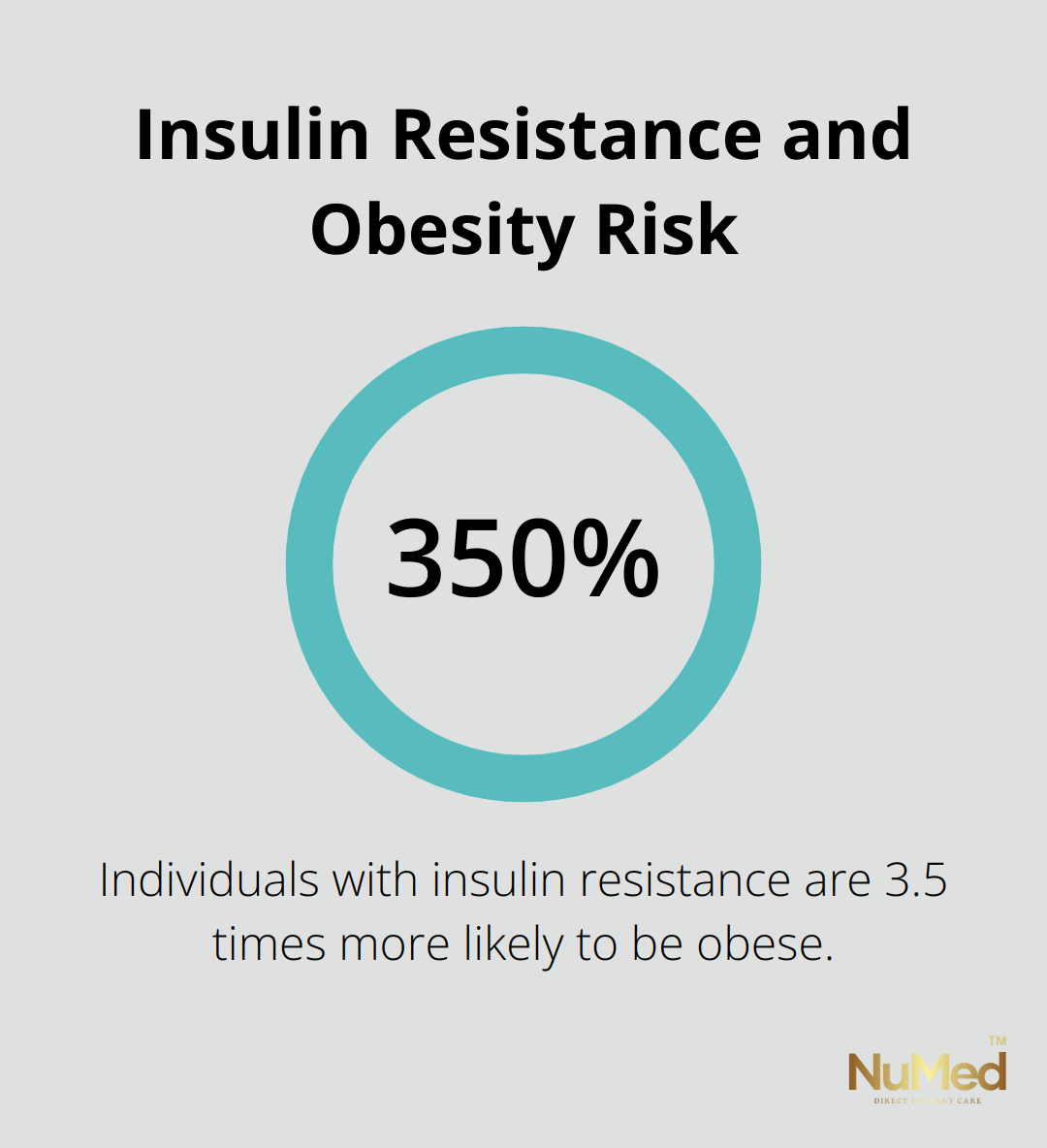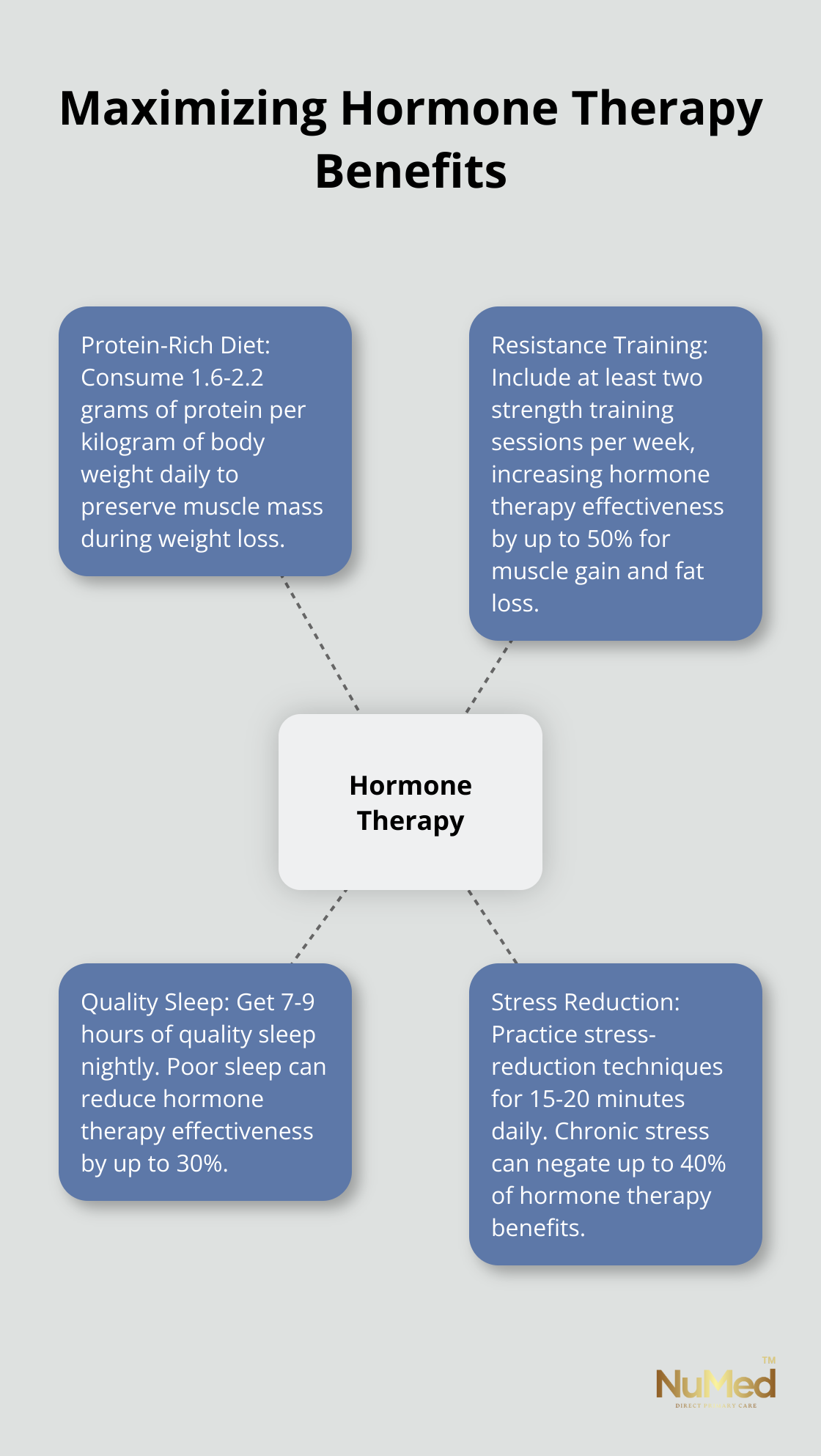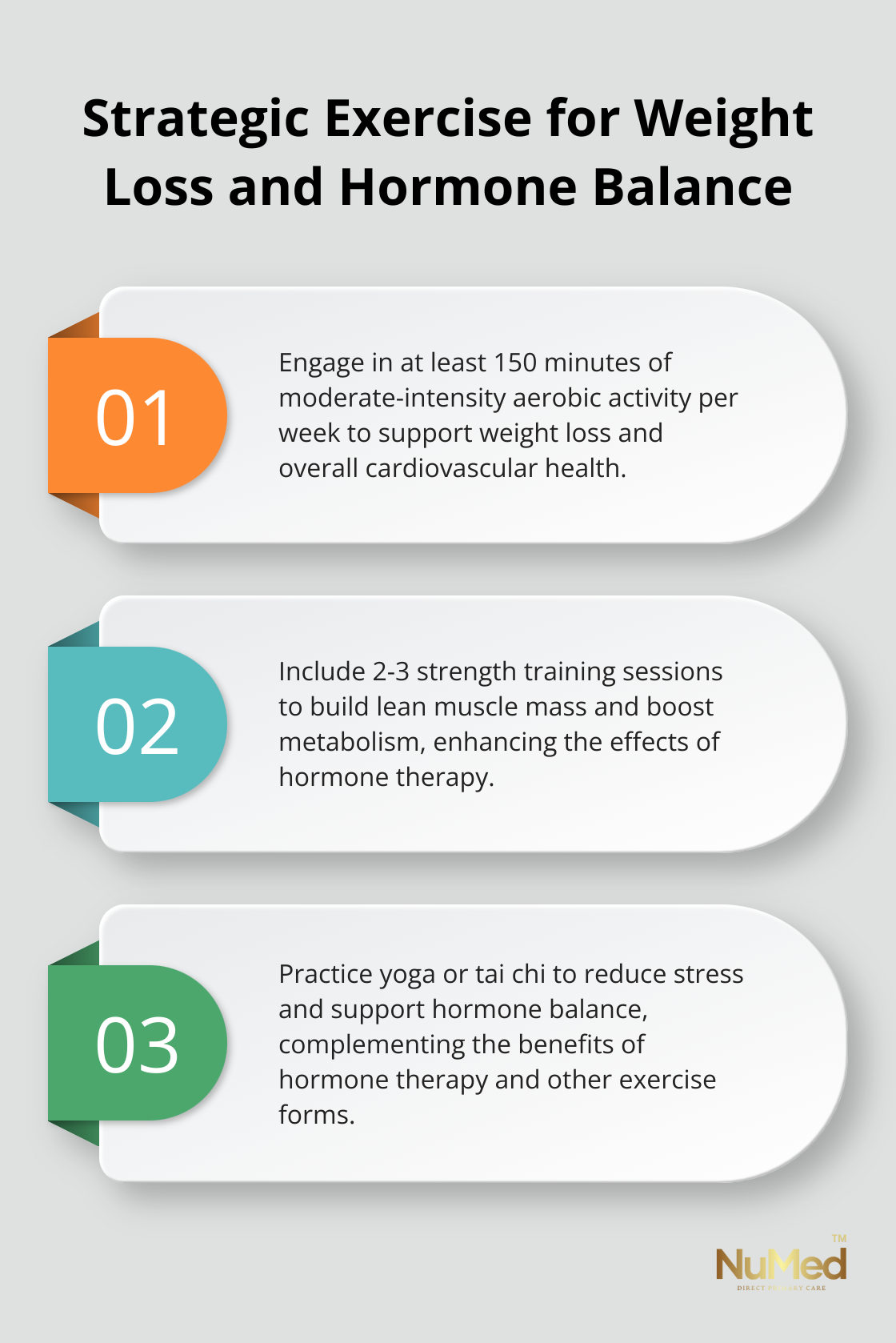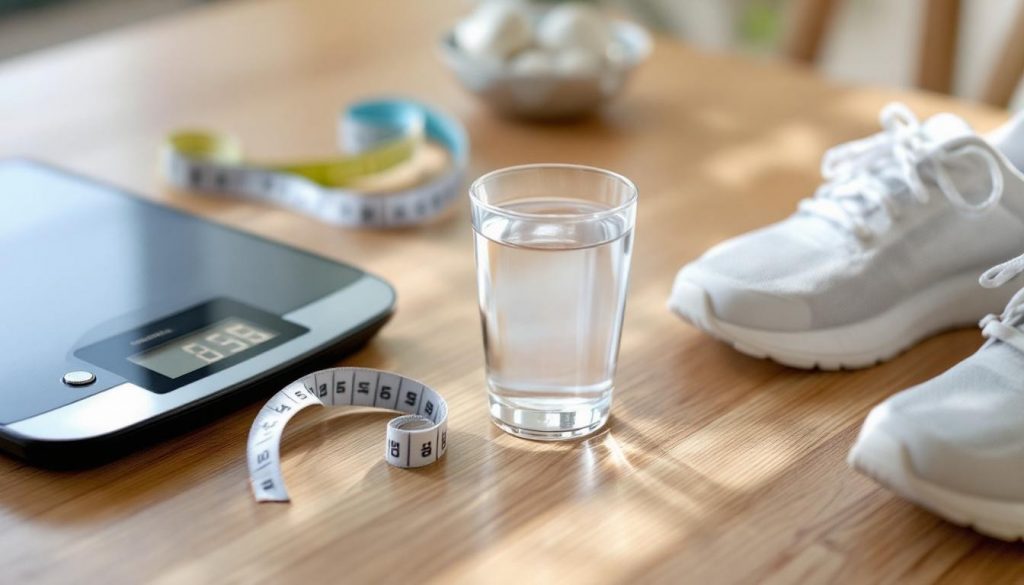At NuMed DPC, we understand the challenges of maintaining an active life while managing weight and hormonal balance. Many individuals struggle with weight loss, unaware that hormonal imbalances may be hindering their progress.
Active life hormone therapy and weight loss can work together to create powerful results. In this post, we’ll explore how combining these approaches can help you achieve your health and fitness goals more effectively.
What Are Hormones and Weight Loss?
Hormones act as vital chemical messengers that regulate our body’s functions, including metabolism and weight management. Many patients struggle with weight loss despite their best efforts, often due to hormonal imbalances that significantly impact the body’s ability to shed pounds.
The Hormone-Weight Connection
Key hormones involved in weight management include insulin, cortisol, thyroid hormones, and sex hormones (estrogen and testosterone). These hormones influence how the body stores and burns fat, regulates appetite, and maintains muscle mass.
For example, insulin resistance can raise a red flag that a person is trending toward diabetes. A study published in the Journal of Clinical Endocrinology & Metabolism revealed that individuals with insulin resistance were 3.5 times more likely to be obese compared to those with normal insulin sensitivity.

Identifying Hormonal Imbalances
Recognizing signs of hormonal imbalances is essential for effective weight management. Common symptoms include:
- Unexplained weight gain or difficulty losing weight
- Fatigue and low energy levels
- Mood swings and irritability
- Changes in appetite or cravings
- Disrupted sleep patterns
If you experience these symptoms, consult with a healthcare provider who can conduct appropriate tests and develop a personalized treatment plan.
Hormone Therapy: A Targeted Approach
Hormone therapy aims to restore balance to the body’s hormonal systems. Preliminary evidence suggests that HRT improves physical well-being by enhancing glycemic control, reducing inflammation, and supporting cardiovascular health.
Addressing thyroid imbalances can significantly impact weight loss efforts. A study in the International Journal of Obesity showed that individuals with hypothyroidism who received appropriate treatment experienced an average weight loss of 8.4 pounds over 6 months.
The Synergy of Hormone Therapy and Lifestyle Changes
Hormone therapy isn’t a standalone solution for weight loss. It proves most effective when combined with a healthy diet, regular exercise, and stress management techniques. This comprehensive approach (which includes hormone optimization and lifestyle modifications) has helped numerous patients achieve sustainable weight loss and improved overall health.
The next section will explore how these elements work together to create a powerful synergy for achieving your weight loss goals. We’ll discuss specific strategies to maximize the benefits of hormone therapy while making positive lifestyle changes.
Maximizing Weight Loss with Hormone Therapy
The Power of Hormone Optimization
Hormone therapy can revolutionize weight loss efforts for many individuals. Balancing hormones often kickstarts stubborn weight loss journeys. Let’s explore how hormone therapy and lifestyle changes create a synergistic effect for powerful results.

Hormone Therapy as a Metabolic Catalyst
Hormone therapy does more than replace hormones; it optimizes the body’s natural processes. Thyroid hormone increases the basal metabolic rate by increasing the gene expression of Na+/K+ ATPase in different tissues. This metabolic boost potentially translates to additional calories burned daily.
Estrogen deficiency in postmenopausal women can lead to visceral fat accumulation, which is a consequence of energy stress followed by the energy transfer from subcutaneous adipose tissue to visceral adipose tissue.
Testosterone replacement in men with low levels increases muscle mass and reduces body fat. Research published in the European Journal of Endocrinology showed that men receiving testosterone therapy lost an average of 4.4% body fat over a year.
Combining Hormone Therapy with Lifestyle Changes
Hormone therapy provides significant benefits, but it works best when combined with diet and exercise. Here’s how to maximize results:
- Protein-Rich Diet: Consume 1.6-2.2 grams of protein per kilogram of body weight daily. This preserves muscle mass during weight loss, especially important during hormone therapy.
- Resistance Training: Try to include at least two strength training sessions per week. This can increase the effectiveness of hormone therapy by up to 50% for muscle gain and fat loss.
- Quality Sleep: Get 7-9 hours of quality sleep nightly. Poor sleep reduces the effectiveness of hormone therapy by up to 30% due to its impact on cortisol levels.
- Stress Reduction: Practice stress-reduction techniques like meditation or yoga for 15-20 minutes daily. Chronic stress negates up to 40% of hormone therapy benefits due to elevated cortisol levels.
Understanding Risks and Considerations
Hormone therapy, while effective, comes with potential risks. Some patients experience side effects such as acne, mood swings, or changes in libido. In rare cases, hormone therapy may increase the risk of blood clots or certain cancers.
Working closely with a healthcare provider who monitors progress and adjusts treatment as needed is essential. Regular blood tests and symptom assessments ensure optimal hormone levels and minimize risks.
Hormone therapy serves as a powerful tool, but it requires commitment to lifestyle changes and regular medical supervision. The combination of hormone therapy and healthy habits leads to sustainable weight loss and improved overall health when done correctly.
As we move forward, let’s explore how to implement a comprehensive approach that combines hormone therapy with personalized lifestyle modifications for optimal results.
How to Create Your Personalized Weight Loss Plan
Collaborate with Your Healthcare Team
The first step involves close collaboration with your healthcare provider. A thorough hormone panel and health assessment will identify imbalances and create a personalized treatment plan. This may include bioidentical hormone replacement therapy (BHRT) or other interventions tailored to your specific needs.
Recent research evaluates the current landscape of obesity pharmacotherapy while exploring factors influencing variability in treatment response.
Optimize Your Nutrition
Proper nutrition plays a vital role in sustained weight loss, even with hormone therapy. We recommend:
- Calculate your daily caloric needs based on your age, gender, and activity level.
- Try to create a moderate calorie deficit of 500-750 calories per day for sustainable weight loss.
- Focus on whole, nutrient-dense foods that support hormone balance.
A study published in The American Journal of Clinical Nutrition reported that late eating is linked with greater insulin resistance. Moving more and exercising can help maintain steady blood sugar levels.
Incorporate Strategic Exercise
Exercise serves as a powerful tool for weight loss and hormone balance. We suggest:

A study in the International Journal of Obesity found that combining hormone therapy with regular exercise led to a 23% greater reduction in visceral fat compared to hormone therapy alone.
Track Your Progress and Adjust
Consistent monitoring proves key to long-term success. We recommend:
- Keep a food and exercise journal to identify patterns and areas for improvement.
- Regularly measure body composition (not just weight), as muscle gain can offset fat loss on the scale.
- Schedule follow-up appointments every 4-6 weeks to assess hormone levels and adjust treatment as needed.
Advanced body composition analysis allows for more precise treatment adjustments by tracking changes in muscle mass and body fat percentage.
Personalize Your Approach
Every individual responds differently to hormone therapy and lifestyle changes. Work with your healthcare provider to fine-tune your plan based on your unique needs and progress. This may involve adjusting hormone dosages, modifying your diet, or altering your exercise routine.
(Consider factors such as your age, medical history, and personal goals when developing your personalized weight loss plan.)
Final Thoughts
Active life hormone therapy and weight loss strategies create a powerful synergy for optimal health. This approach addresses hormonal imbalances and implements targeted lifestyle changes to overcome stubborn weight loss plateaus. The benefits extend beyond the scale, encompassing enhanced energy, improved mood, better sleep, and increased muscle mass.
We at NuMed Direct Primary Care understand the complexities of hormone balance and weight management. Our team of experts provides comprehensive, patient-centered care that goes beyond traditional approaches. We focus on prevention, address root causes, and tailor treatments to each individual’s specific needs (considering factors such as age, medical history, and personal goals).
Take the first step towards a more vibrant, active life today. Consult with a healthcare provider who specializes in hormone therapy and weight management to discover how this integrated approach can transform your health. Your journey to optimal health starts now.
















